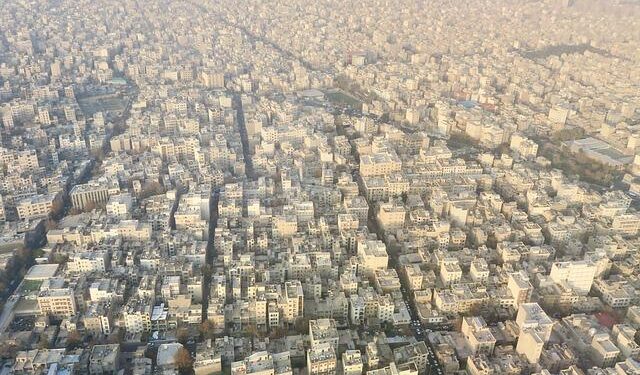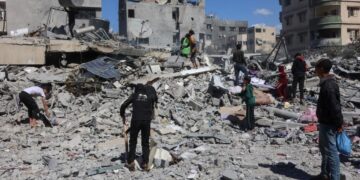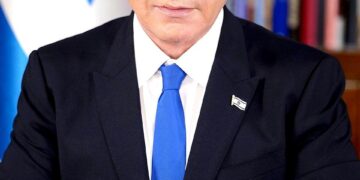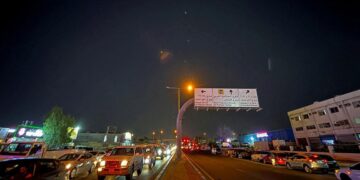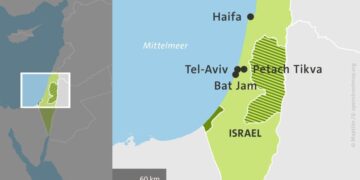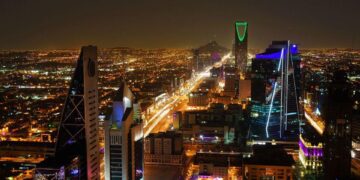In a meaningful diplomatic maneuver, Russian Foreign Minister Sergey Lavrov arrived in Tehran for high-level discussions aimed at reinforcing bilateral ties between Russia and iran. The visit marks a critical moment amid shifting geopolitical landscapes, as both nations seek to enhance cooperation on various fronts, including trade, security, and energy. With tensions escalating globally, Lavrov’s meetings with Iranian officials underscore the importance of this partnership in navigating a complex international arena.The talks are expected to address pressing issues such as regional stability, counter-terrorism efforts, and the intricate dynamics of their positions in the ongoing conflict in Syria, and also their mutual interests in a multipolar world. This article delves into the details of Lavrov’s visit and its implications for Russian-Iranian relations and broader geopolitical developments.
Russian Foreign Minister’s Agenda: Key Issues on the Table in Tehran
As Russian Foreign Minister Sergei Lavrov commences his visit to Tehran, several crucial issues are expected to dominate the discussions between Russian and iranian officials. Key points on the agenda include bilateral trade relations, with a particular focus on enhancing economic cooperation in energy and agriculture sectors. Additionally, the geopolitical landscape in the Middle East will be a significant topic, especially in light of recent conflicts and shifting alliances. The discourse is likely to delve into the implications of U.S. sanctions and how Moscow and Tehran can collaboratively navigate these challenges.
Another major aspect of Lavrov’s visit is the nuclear deal negotiations involving Iran,with russia playing a crucial role as a signatory of the Joint Comprehensive Plan of Action (JCPOA).The two nations will explore strategies to maintain and possibly revive the stalled dialog, emphasizing regional stability and countering Western influence. Other potential discussion points may include collaboration on military matters, humanitarian aid in conflict zones, and addressing the ongoing situation in Afghanistan. The outcome of these talks could significantly influence both nations’ foreign policy trajectories in the coming months.
Implications of Lavrov’s Visit for Russia-Iran relations
Sergey Lavrov’s recent visit to Tehran is poised to significantly impact the geopolitical landscape in which both Russia and Iran operate. as the two nations deepen their partnership, several key implications arise.Firstly,the discussions held during Lavrov’s visit highlight the increasing alignment of their strategic interests,particularly in the face of western sanctions and pressures. This collaboration may strengthen military and economic ties, allowing both countries to bolster their positions against adversarial forces, enhancing their regional influence.
Moreover, Lavrov’s trip could signal a turning point in energy cooperation between the two nations. A closer relationship could lead to mutually beneficial agreements in areas such as oil production, energy projects, and infrastructure development, essentially creating a counterbalance to Western oil markets. The potential outcomes of this collaboration may include:
- Joint Energy Initiatives: Facilitation of shared projects in oil and gas sectors.
- Increased Military Cooperation: Strengthened defense partnerships to address mutual security concerns.
- Enhanced Trade Relations: Expansion of trade agreements to circumvent sanctions.
| Key Areas of Cooperation | potential benefits |
|---|---|
| Energy | Stabilized markets and increased revenues. |
| Military | enhanced security against external threats. |
| Trade | Stronger economic resilience and growth. |
Analyzing the Strategic Partnerships in Energy and Defense
The recent visit of Russian Foreign minister Sergey lavrov to Tehran underscores the growing significance of strategic partnerships between countries in the realms of energy and defense. As global geopolitical dynamics shift, nations are increasingly seeking to forge alliances that provide mutual benefits, particularly in the face of sanctions and isolationist policies. The discussions during the Tehran talks indicate a solidifying relationship between Russia and Iran, two nations often at odds with western powers.With energy resources being a focal point of these discussions, both countries are looking to enhance cooperation in areas such as oil production and technological exchanges to bolster their respective economies.
Moreover, the defense sector remains a critical component of the partnership, as both Russia and Iran are likely to collaborate on advanced military technologies and arms trade. This alliance enables them to jointly counteract perceived threats and project power in the region. Some key aspects of their strategic partnership include:
- Joint Military exercises: Enhancing operational capabilities through coordinated drills.
- Arms Agreements: Expanding the range of defense technologies exchanged.
- Energy Collaboration: Sharing expertise in oil and gas extraction technologies.
These developments raise crucial questions about the broader implications for Middle Eastern stability and global energy markets. As both nations continue to deepen ties, the international community will be closely monitoring their moves, aware that this collaboration may significantly alter power balances in the region.
The Role of Tehran in the Regional Geopolitical Landscape
Tehran has emerged as a pivotal player in the intricate geopolitical web of the Middle East, influencing regional dynamics through a combination of diplomacy, military alliances, and economic partnerships. With its strategic position and vast resources, Iran is actively engaging with neighboring countries and major powers, aiming to enhance its influence not onyl in the region but also on a global scale. Factors contributing to Iran’s significance include:
- Strategic Alliances: iran’s collaborations with groups like Hezbollah and its support for the Assad regime in Syria bolster its position against rival powers.
- Economic Leverage: The potential of Iranian markets, coupled with its vast natural resources, presents significant opportunities for countries seeking partnerships.
- Military Capabilities: Iran’s advancements in missile technology and unmanned drone systems enhance its deterrent posture and influence regional security considerations.
The recent visit by Russia’s Foreign Minister Sergey Lavrov to Tehran underscores the burgeoning ties between Tehran and Moscow, as both countries navigate a shared agenda that often opposes Western interests. this visit highlights Tehran’s increasing importance as a regional hub for diplomatic interactions among key players such as Russia, China, and Turkey, reflecting a shift towards a multipolar world order. Iran’s ability to host such high-level talks positions it as a critical intermediary in addressing conflicts and fostering dialogue in a region beset by complexity, where:
| Key Players | Interests | Potential Impact |
|---|---|---|
| Iran | Regional Influence | Strengthens regional alliances |
| russia | Combat US Influence | Enhances military cooperation |
| Turkey | Stability in Syria | Paves way for joint security measures |
| China | Energy Partnerships | Boosts economic ties and investment |
Future Prospects: What This Visit Means for International Diplomacy
The recent visit of Russian Foreign Minister Sergey Lavrov to Tehran marks a significant step in reshaping the dynamics of international diplomacy. This meeting comes at a critical juncture, as global power structures are shifting and the focus on multi-polarity is intensifying. Key implications of Lavrov’s visit include:
- Strengthening Bilateral Ties: Enhanced cooperation between Russia and Iran could lead to increased political and economic partnerships, contributing to greater stability in the region.
- Response to Western Policies: This visit signals both nations’ resistance to Western sanctions and a united front against perceived interference in their internal affairs.
- Collaborative Security Measures: Discussions may pave the way for joint efforts in combating terrorism and securing regional interests, especially regarding shared borders and threats.
Moreover, this meeting encapsulates the evolving narrative of alliances in the 21st century. It highlights the potential for non-Western countries to collaborate to counterbalance Western influence. The exchange of ideas during the talks may lay the groundwork for future dialogues among other nations with shared interests. Consider the following table summarizing the potential impacts of the visit:
| Impact Area | Potential Outcomes |
|---|---|
| Trade Relations | Increased economic collaboration and trade agreements |
| Military Cooperation | Joint exercises and enhanced security protocols |
| Energy policy | New investment in energy projects and infrastructure |
| Diplomatic Alliances | Formation of new coalitions to challenge Western hegemony |
To wrap It Up
Russian Foreign Minister Sergey Lavrov’s recent visit to Tehran underscores the evolving dynamics of international relations in the region. The discussions between Lavrov and Iranian officials reflect a shared interest in bolstering bilateral ties amid shifting geopolitical landscapes, particularly considering Western sanctions and pressures.As both nations seek to enhance cooperation in various sectors, including energy and security, the implications of this visit extend beyond their borders, potentially influencing regional stability and alliances. Observers will be keenly watching how these developments unfold and what they might mean for the broader interplay of power in the Middle East, as well as for Russia’s strategic positioning on the global stage. The consequences of Lavrov’s discussions in Tehran will undoubtedly resonate well into the future, shaping the contours of foreign policy for both nations in a rapidly changing world.

